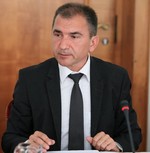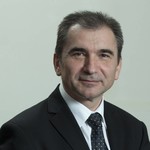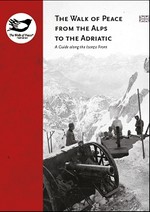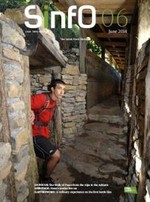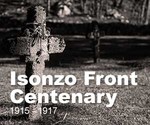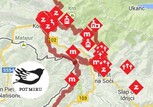President of the Republic of Slovenia Borut Pahor
Reflection on the war is reflection about relations and human ties at a number of levels. When the balance of relations is thrown askew, new, unexpected and even unpredictable attempts at changing the world are sometimes the result, very often materialising as war, violence, lawless conduct, inconsolable mourning on all the fronts that war creates, and also in combativeness, numb indifference and unselfish sacrifice. More...
Minister of Defence Andreja Katič and Chair of the Slovenian National Committee for the 100th Anniversary of World War I (2014-2018)
In her poem Slovo (Farewell) from 1914, Slovenian folk poet Manica Koman described the feelings of young Slovenian men leaving to the battlefields of World War I. According to historians, some 30,000 of them were deployed at the very beginning. During the following four years, many more left to war, serving in almost all branches of the Austrian Hungarian armed forces. Many of them lost their lives in this tragic shock of war. The war importantly affected life in general and caused anguish even to the part of the population which had not been involved in the battles – elderly people, women and children. More...
Former Minister of Defence and former President of the National Committee Janko Veber
The time we live in now, 100 years after World War I, definitely gives us the opportunity to build on the memory of those painful past events in a dignified manner with a touch of humanity and trust in the goodwill of nations living in this territory, where the state borders of the neighbouring nations no longer divide us as strong as they used to. We at the National Committee for Commemorating the 100th Anniversaries of World War I (2014–2018) feel therefore great responsibility in making our contribution to even stronger links among the nations living in this territory, notably through the implementation of concrete projects. More...
Former Prime Minister Alenka Bratušek
In the years of war, the families of workers and peasants who sacrificed their male members transcended the traditional framework of the man as head of the family and the woman as housewife. Women had to take up both roles during the war. They had to overcome their insecurity and fear of the future and take over the reins. In the struggle for the survival of their families, they took up female as well as male tasks, even the hardest ones. More...
Former Minister of Defence and former President of the National Committee Roman Jakič
The First World War was, in short, a turning point in the history of Slovenian military tradition and in shaping the awareness and idea of the Slovenian army as one of the cornerstones of a mature nation – as a process of national emancipation necessarily entails an articulated awareness of the national army. More...
Former President of the National Assembly Janko Veber
The First World War not only brought desolation and victims, but also decisive changes to Slovenians. The national framework of which they had been part for centuries disintegrated. As a result of peace treaties concluded among the major forces, to which we were merely inconsequential pawns, a considerable part of the national territory was lost. More...



